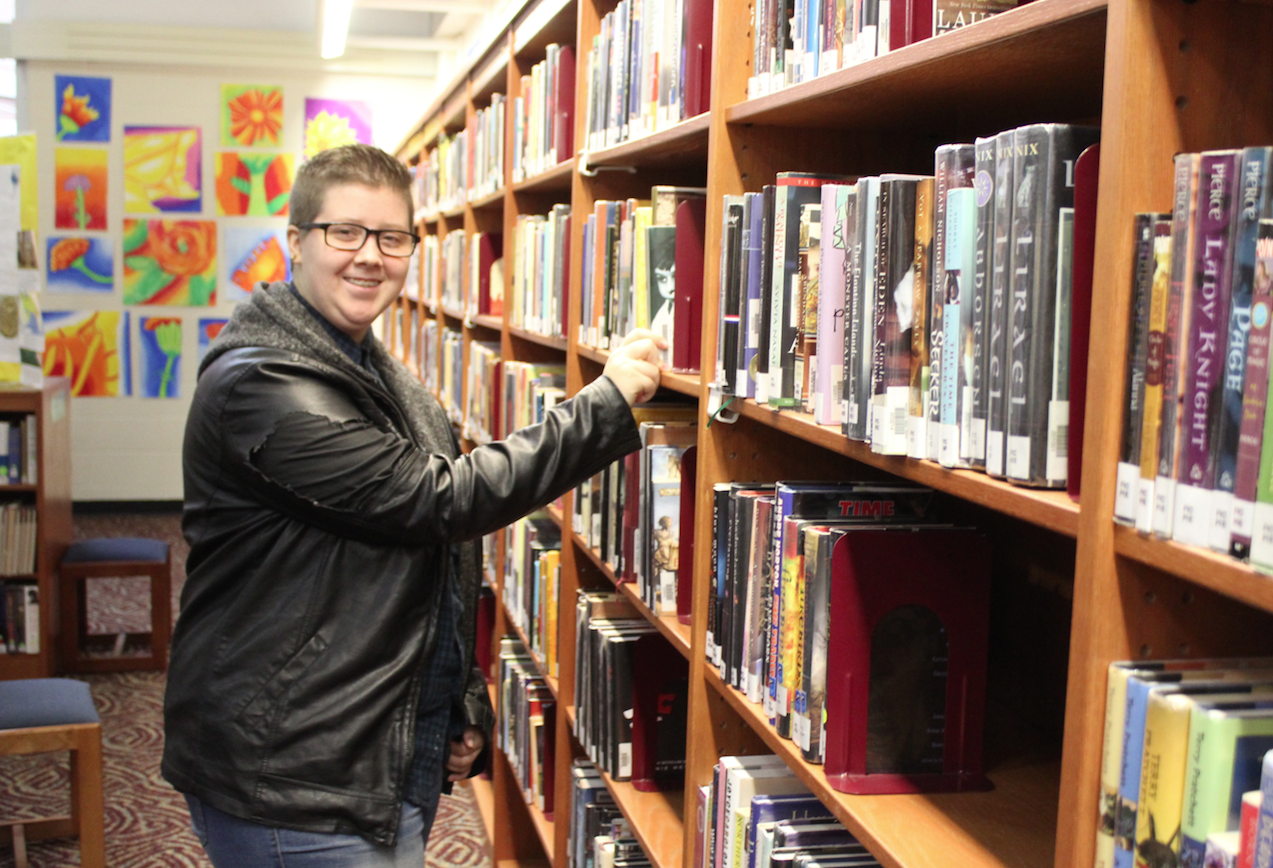2016 graduate Marcus Maier shares his experiences of coming out as transgender during his senior year at DHS
By Megan Sarns
In our October issue, we published an article about the fight for transgender equity at Dexter High School and efforts to make Dexter Community Schools safer for everyone. In continuation of that piece, Marcus Maier, who graduated from DHS in 2016, wanted to come forward and share his personal story.
“Ever since I was younger, I always told people I wished I was born male,” Maier said. “When people say it’s not a choice, it’s really not a choice. It’s just there.”
Marcus Maier identifies as a transgender male, meaning he was assigned the female gender at birth but later came into his gender identity as a male.
The hardest part, according to Maier, is telling people.
Maier’s first experience coming out was before he realized his identity as transgender, when he told his mom he was attracted to women.
“She started out by telling me that if she found out that I’m dating a woman, I was gonna get kicked out,” Maier said. “That scared me, and I think that was her [intention].”
Having had that experience, coming out as transgender was all the more daunting, and it prevented Maier from telling his mom at all. Instead, his ex-girlfriend’s mom ended up telling his mom for him.
“[My ex-girlfriend’s mom] was my backbone,” Maier said. “It’s like someone’s finally giving you that attention and accepting you right away. She was a mother figure for me.”
Maier cited his close friends as another important support system, and although he knew Dexter was accepting of LGBTQ+ students, he had concerns when it came to openly expressing his gender identity at school.
“You’re always afraid that someone is gonna come around and say something,” Maier said. “That’s what I struggled with at first.”
Senior year was an important turning point in Maier’s life.
“It’s the criticism that pushes you back into hiding. When I was in my senior year, I was done hiding,” he said.
Maier explained that during his senior year, he “started to come out more,” changing his hair and dressing differently. He also started asking people to refer to him as Marcus instead of his birth name.
Maier’s senior year also happened to coincide with the increase in media attention towards the transgender community, which left a big impact on his personal experiences at that time.
“That was the time when the whole bathroom issue came up,” Maier said, referring to the push from the LGBTQ+ community and their supporters to protect transgender individuals when using the bathroom of their gender identity.
The movement was not without backlash. People boycotted Target when the superstore implemented a bathroom policy that allowed transgender people to use their bathroom of choice at its stores. North Carolina passed a law that required transgender people to use the bathroom that corresponded with the sex on their birth certificate.
For Maier, what became a nation-wide debate started as a part of his day-to-day life.
“There were so many times when I wanted to go into the guy’s bathroom but I was scared,” he said. “I just didn’t want to be made fun of.”
Although Dexter has made progress towards protecting transgender students inside and outside the bathroom, Maier said there is still more to be done.
Many people don’t know what it means to be transgender, and it can be difficult for some people to understand.
“It takes time,” Maier said, referring to the people in his life who have struggled to accept his gender identity. “You have to have patience. Not everyone is going to accept it right away.”
Through education, Maier is hopeful for a more accepting future, and in turn, a safer future for transgender people.
“Acceptance is the major key to everything,” Maier said. “There’s really no difference with being transgender. It’s really just about being you and being a person.”

